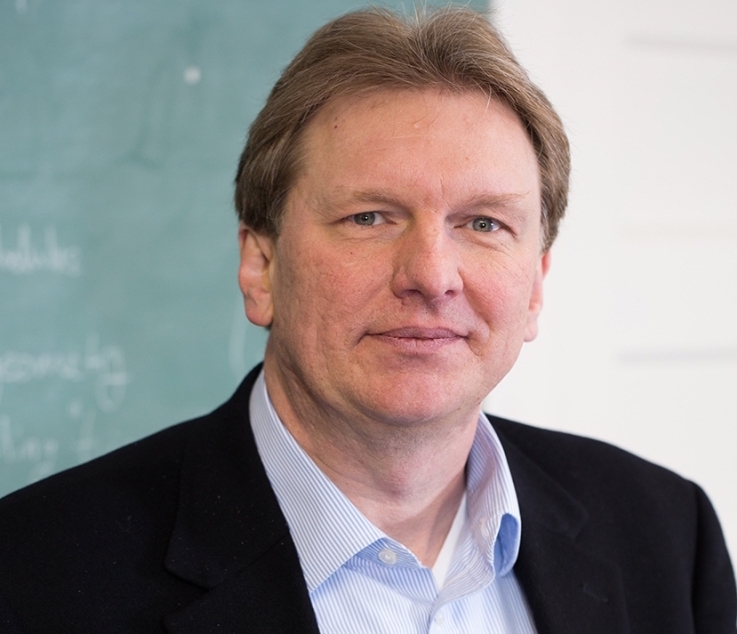Every year, the American Physical Society (APS) holds a meeting of the APS Division of Fluid Dynamics (DFD) to promote the advancement and dissemination of knowledge in all areas of fluid dynamics. We are excited to announce that Dr. Michael Plesniak, Professor in the Mechanical and Aerospace Engineering (MAE) Department, will co-chair the 2023 meeting!
"GW Engineering has a world-class fluid dynamics group. The fluids faculty are recognized leaders in this discipline and have won many honors, including fellowships in all major professional organizations. We are passionate about fluid dynamics. Alongside our students, we will make important scientific contributions to the meeting. Our leadership in organizing this conference will ensure its quality at the highest level,” said Plesniak.
Plesniak earned this opportunity over the course of his career by demonstrating leadership in organizing successful technical and smaller conferences. He has been involved with the APS DFD for over 30 years and, alongside other members of GW’s fluid dynamics group, was encouraged by DFD leadership to put in a bid to co-host the conference in D.C. with the University of Maryland, which was accepted.
This year’s meeting is projected to draw around 4,000 attendees. Due to this large number, the group submitted their proposal in 2017 in order to be able to book the Washington Convention Center early enough in advance of the annual meeting. They signed the finalized contract in 2018 to book the venue for 2023.
The local organizing committee Plesniak is helping to lead is very large in itself. He stated, “Although GW and the University of Maryland are the lead organizers, organizing a meeting on this scale requires a team effort, and we acknowledge all of our partner universities that are contributing, including Howard University, Johns Hopkins University, University of Delaware, University of Virginia, and the US Naval Academy. We are leading a team of over 30 faculty that comprise the local organizing committee, along with their students, postdocs, and researchers.”
In addition to contributed papers, this year’s technical program will include a minisymposia, focus sessions, technical posters, contributed talks (oral and poster), lectures by award and prize winners, and 12 invited talks, including one given by another MAE Professor, Dr. Kausik Sarkar. Flash presentations are an additional feature being re-introduced now that the meeting is back to being held entirely in person. These represent an exciting and dynamic modality to highlight the key takeaways of the research posters in 1 minute and give great exposure to presenters since, like the invited talks, there are only three sessions in parallel so that each presenter may enjoy an audience of over 1,000 attendees.
With over 3,000 presentations in total and 41 major abstract sorting categories, many new theoretical, experimental, and computational developments will be made over the course of these four days, ranging from micro-scale flows to geophysical and astrophysical flows. This year’s meeting also places a strong emphasis on Diversity, Equity, and Inclusion (DEI) with a dedicated abstract category that will feature workshops such as All the Faces of Fluid Dynamics and Underrepresented Minorities in Research and a minisymposim on The Stories of Women in Fluids.
Fluid flow touches every aspect of our lives, from weather to transportation to the plumbing in your house. It even makes life itself possible via the circulation of blood and nutrients, the breathing of air, and the removal of heat and waste. Therefore the new developments that result from this meeting will have important applications in transportation, energy innovation, aerodynamics, biomedical advances, industrial processes, and understanding our universe. Consider the impact of a minisymposia and focus sessions on diverse topics such as Intra-ventricular Fluid Mechanics in Heart Failure, Culinary Fluid Dynamics, and Low Prandtl Number Dynamics in Stellar and Planetary Interiors.


